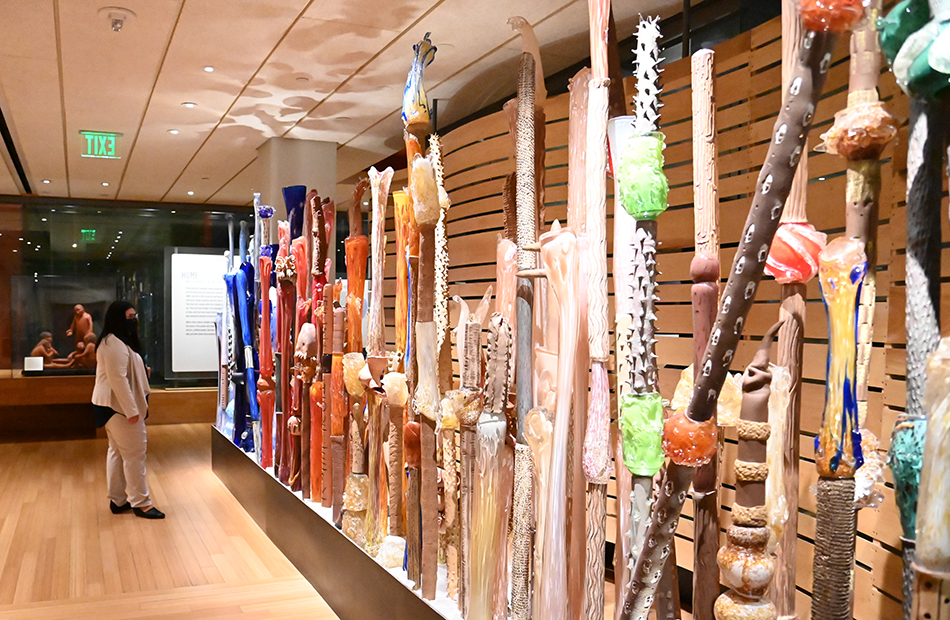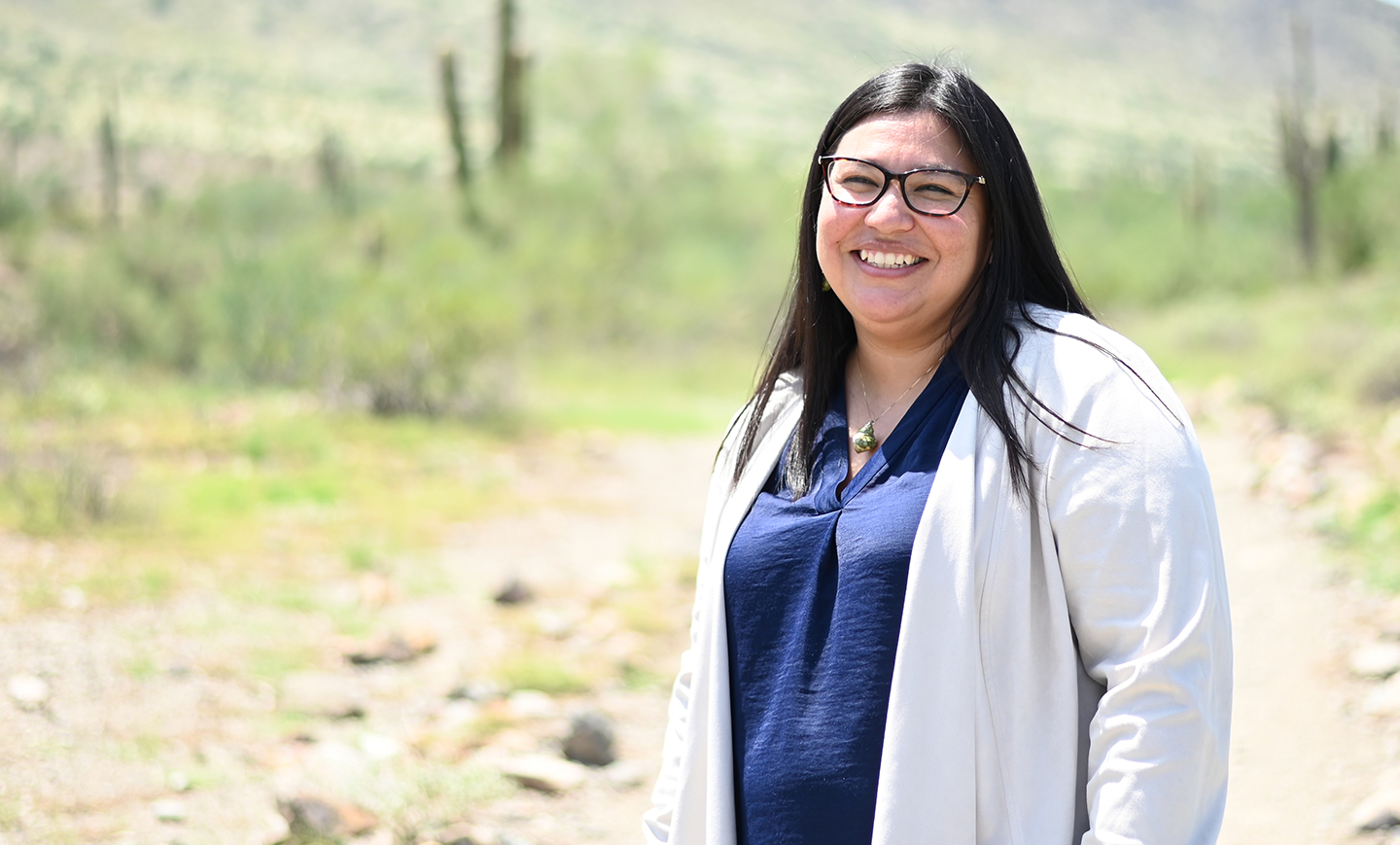As Naomi Bishop walks through Phoenix’s Heard Museum, she’s in awe of the intricate Native American artwork on display: tiny animal-shaped brooches; large, handspun Navajo fabrics; dolls depicting Native warriors on horseback, embellished with thousands of tiny beads.
Down the hallway is a large exhibit documenting the tragic history of American Indian boarding schools, where the federal government sent generations of children — by force or coercion — and immersed them in European-American culture in the 19th through mid-20th centuries. Native American culture was erased in the process, as the schools banned traditional languages, songs and dances, cut children’s hair, and forced them to wear American-style clothes. Trauma and abuse were common.
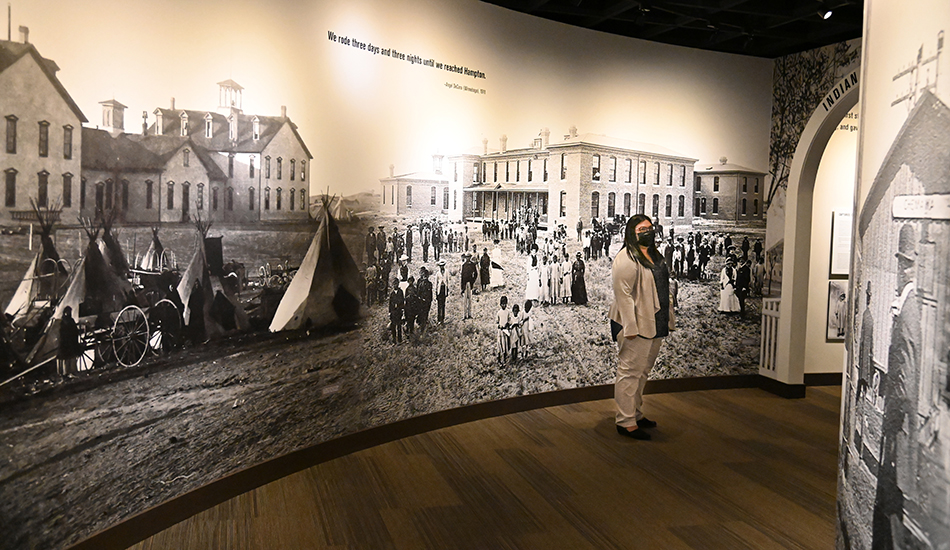
For Bishop, a member of the Akimel O’odham (Pima) tribe in Arizona’s Gila River Indian Community, that history is in her blood. Her own grandfather was sent to a boarding school and forced to learn English.
“For Native people, there was a time when we weren’t allowed to practice our language, we weren’t allowed to share our knowledge,” she says.
As a librarian, Bishop, MLIS ’10, feels empowered to share knowledge on a daily basis, and she’s never shy about doing so. Her commitment to lifelong learning, her advocacy for public health, and her passion for equity in the library, university and health-care fields are among the reasons she is the 2021 iSchool Distinguished Alumni Award recipient.
As a health sciences librarian at the College of Medicine on the University of Arizona’s Phoenix campus, she helps students and faculty conduct research, teaches and leads workshops, and promotes community initiatives at the school. She tries to connect students with the large Native and Hispanic populations in Arizona — the people they will serve as physicians.
“My goal of being here as a librarian is, it’s not just books and models,” she says. “You need to learn about the community. It’s something you can experience, not just study.”
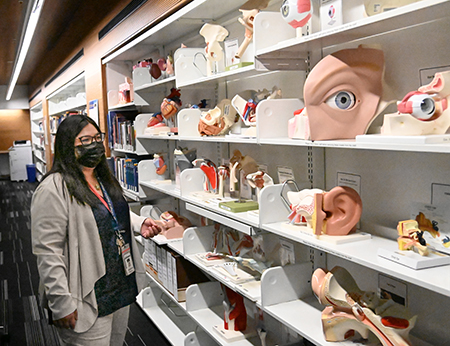
One of her initiatives at her library was a display about access to health care among Native people in Arizona. When the COVID-19 pandemic hit, students knew about the challenges faced by tribal communities and responded by conducting a donation drive to bring personal protective equipment to them.
“I wasn’t behind all of that, but our students were engaged, I think, because they were exposed to that information and knew there was more to this community,” Bishop says.
On campus, she’s been outspoken about implicit bias in medical literature, prompting changes to the university’s curriculum. She recently co-wrote in a journal arguing that structural racism, discrimination and assimilation need to be accounted for as factors that contribute to health problems.
For example, she noted that doctors have been taught that Native Americans are susceptible to conditions such as diabetes, simply because they get the disease at higher rates than whites. But factors such as the removal of tribes’ traditional water sources go unaddressed as public health concerns.
“Instead of just saying, ‘Here are these problems,’ let’s address why,” Bishop says. “Let’s think about food and access to water and what’s being done to address that.”
She also had an influence on policy in Maricopa County, where she lives. In the early stages of the pandemic, a doctor from the county Board of Volunteers reached out to her, asking what research was available about the efficacy of cloth masks in preventing the virus from spreading. Bishop put her librarian skills to work, gathering information from countries where masks were more commonly worn. City and county leaders cited the information she provided in justifying their vote to enact a mask mandate in public spaces.
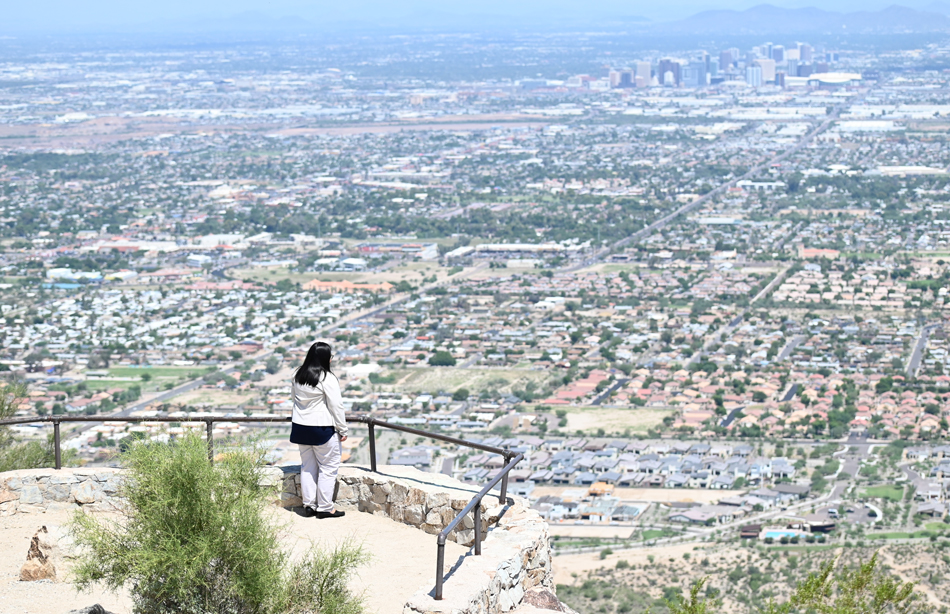
Bishop lives her values, and that comes across in her work at the health sciences library, says her supervisor, Library Director David Bickford.
“She’s highly sensitive to the diversity of our student body and celebrates all of them through displays and through her collection development,” he says. “She’s done a great deal to expand our commitment to diverse authors, and not just diversity in terms of authors’ ancestry and characteristics, but also looking at things from different perspectives.”
Bishop’s leadership on social justice issues was among the reasons she was chosen from 1,865 nominees as the winner of the I Love My Librarian Award, given annually by the American Library Association with support from the Carnegie Corporation and the New York Public Library. In the past, she has also been a recipient of the American Indian Library Association’s (AILA) Rising Leader Award and a participant in the 2010 ALA Spectrum Leadership Institute. While at the iSchool, she had support from the Sylvia Lake Finley Multi-Ethnic Library Fellowship.
When Bishop began the Master of Library and Information Science program in 2008, she was the lone Native American master’s student at the iSchool. She took a leap of faith after visiting Seattle and meeting Cheryl Metoyer, then the associate dean for research; and Ph.D. students Miranda Belarde-Lewis and Marisa Duarte, who are now faculty members at the iSchool and Arizona State University, respectively.
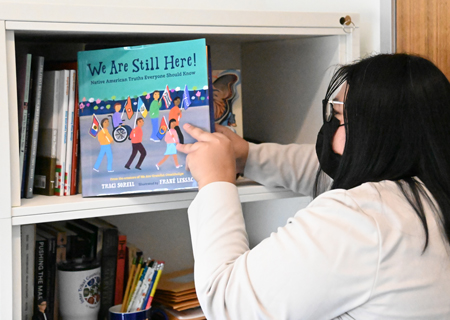
Metoyer, who was among Bishop’s mentors at the iSchool, recalled that she brought the same determination and critical thinking on social justice issues to her classes at the UW. For one assignment, Bishop did a presentation on the cultural importance of how people, places and things are named and renamed, using her own tribe as an example.
Europeans’ approach was, “You erase the name of the place, you erase the name of the people, and you rename it so it fits within your lexicon,” Metoyer says. “She did a very powerful presentation, and it was real, because she was speaking about her own community.”
Bishop remains active in AILA, pressing for inclusion of Native authors and helping to choose the winners of its Youth Literature Awards. She and other advocates notched a recent success when the Association for Library Service to Children announced that AILA’s awards would be part of its slate of youth media prizes, along with the Newbery Medal, Caldecott Medal and other prestigious awards.
Inclusion in the awards will open up more opportunities for Native authors to tell their stories, Bishop says.
“That was the whole point of our awards — to get major publishers to see Native talent, to see Native artists and illustrations done in the most beautiful way to tell our stories,” she says. “Let these Native people publish and you will get incredible stories, real stories of life and love, and Caldecott winners and Newbery winners.”
The next step is to get those stories in the hands of young readers.
On her way out of the Heard Museum, Bishop stops by the children’s playroom and examines its book collection. As she peruses the titles, she grows flustered. In a museum dedicated to American Indian art, she can’t find any books by Native authors.
“I’m going to have to talk to someone about that,” she says.
